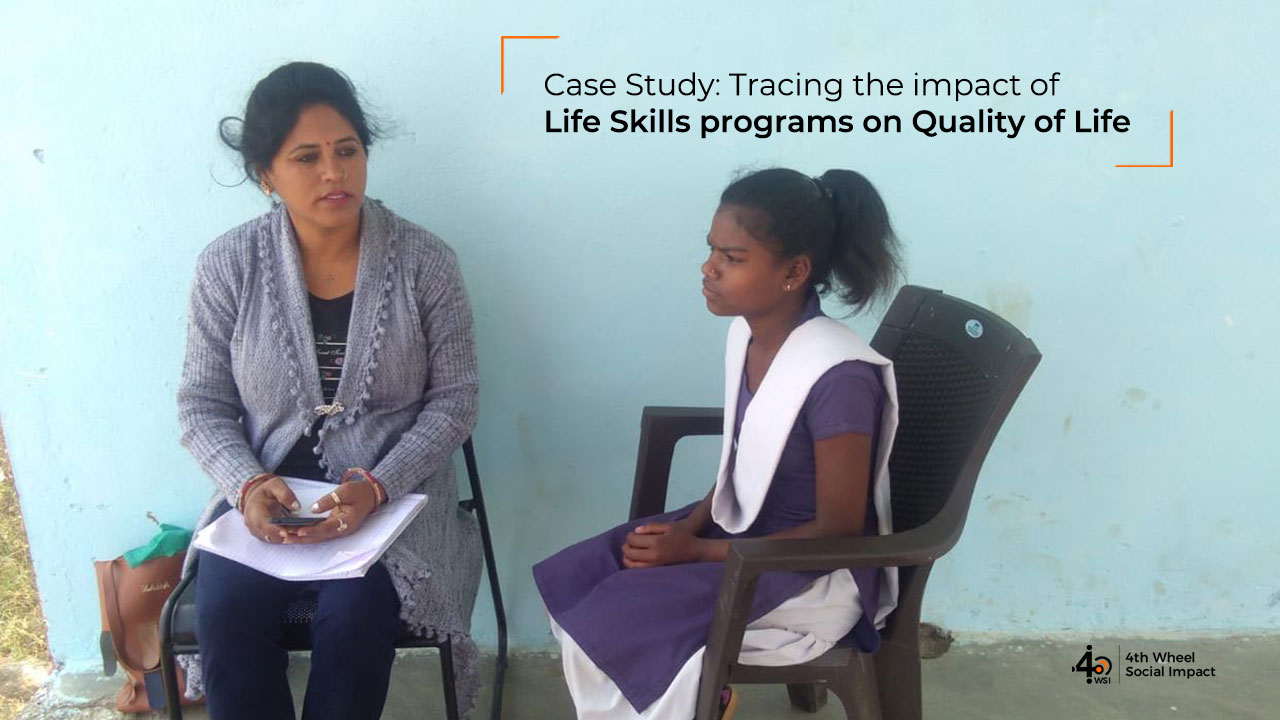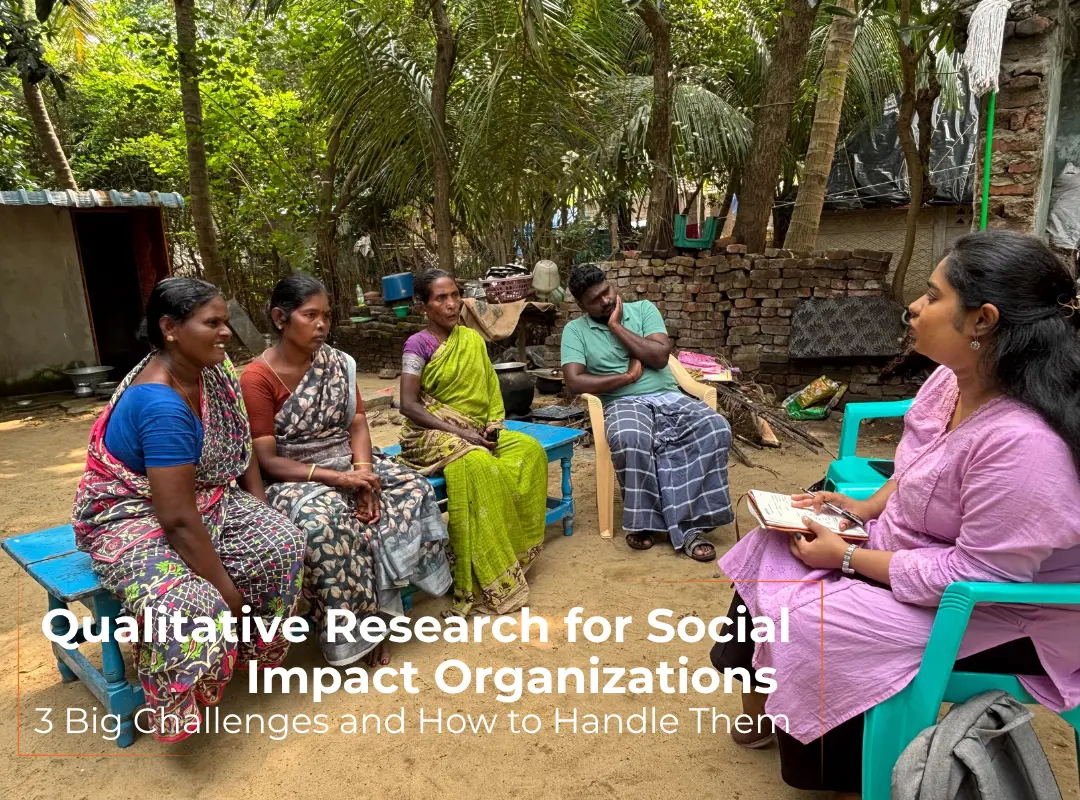Quasi-experimental studies have proven to be very insightful and useful to evidence the impact of social programs. However, resource-intensive field research and high methodological complexity impede many organisations to undertake this type of evaluation.
4th Wheel has been commissioned to undertake a scientifically rigorous evaluation to assess the impact of a life skills programme by Dream a Dream in Bangalore. The impact is assessed in terms of Quality of Life (QoL) of youth aged between 18 and 22 years. Programme alumni (the treatment group) are compared to a control group (those who did not undergo the programme) of the same age. Both groups undertake a self-administered survey to provide inputs on their quality of life as perceived by them. About 100 students of both the treatment and control groups have been included in the study.
The research study makes use of the World Health Organisation (WHO) Quality of Life (QOL) tool. The WHO-QOL100 tool consists of 100 questions organized into six domains that cover aspects from health to the environment, personal beliefs, and social relationships.
A high value is placed on relationship building to mobilise youth for the study. The alumni network, staff members of the NGO, and school principals have played an important role in facilitating the research.
To ensure data validity, 4th Wheel employs the offline application SurveyCTO to capture responses on tablets and directly upload them on a cloud for data analysis. Using tablets has been well-received by the study population and makes the self-administered questionnaire more interesting and engaging.
With the research project starting in mid-November, the pilot study conducted in December has been already a very enriching experience on both sides. After a successful pilot study, the main data collection is currently taking place and results are expected to be published end of March.
Whatever the outcomes might be, the study gathers important data on the impact of the programme, illustrates strengths and weaknesses, and gives momentum to evidence-based decisions within the partner organisation and beyond.




